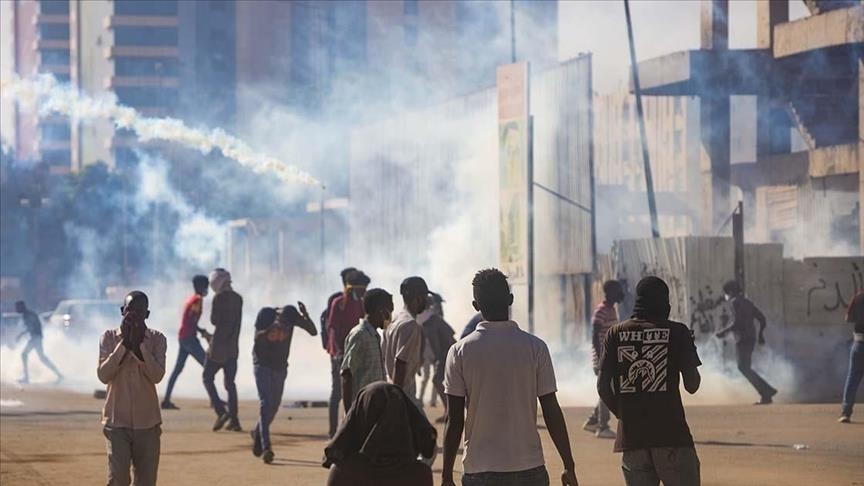Sudan atrocities 'not incidental acts of war,' form pattern: UN expert
'These ongoing atrocities mark a dangerous escalation of the RSF campaign of brutality,' says UN investigator

ISTANBUL
UN investigators said Thursday that atrocities in Sudan are not random war casualties but a “deliberate pattern” to terrorize and starve civilians, particularly targeting non-Arab ethnic groups.
"These are not incidental acts of war. They form a pattern. They form a deliberate strategy to terrorize and starve civilians, particularly from certain ethnic groups," Mona Rishmawi, a member of the Independent International Fact-Finding Mission on Sudan, told reporters.
Rishmawi described the situation in El-Fasher as "extremely difficult," with Rapid Support Forces (RSF) and allied militias besieging the city for more than 500 days before capturing it this week.
The RSF has been "cutting food, medicine and aid" while attacking displacement camps, including Zamzam and Abu Shouk, leaving thousands killed, wounded or displaced, she said.
Rishmawi said the mission continues to receive credible reports of ethnically-targeted executions, sexual violence, widespread looting, destruction of infrastructure and mass forced displacement. The Saudi hospital was attacked 25 times during the siege, Rishmawi noted.
The World Health Organization (WHO) said Wednesday that more than 460 patients and companions had been killed at the Saudi Maternity Hospital in El-Fasher.
"These ongoing atrocities mark a dangerous escalation of the RSF campaign of brutality," she said, adding that humanitarian access remains blocked, worsening starvation and disease for trapped civilians.
Mission member Joy Ezeilo presented a report, "Paths to Justice: Accountability for Atrocities in Sudan," describing a country where the rule of law has collapsed.
"We concluded that Sudan is currently unwilling and unable to conduct a genuine investigation or prosecution for international crimes," said Ezeilo.
She said findings show "impunity has prevailed" and "courts deliver selective justice without offering fair trials."
Investigators recommended expanding International Criminal Court (ICC) jurisdiction over Sudan's entire territory, establishing an independent judicial mechanism partnering with the ICC, and creating a victim support and reparations office.
Ezeilo suggested targeted sanctions and an arms embargo against "those responsible."
When asked about the RSF leader's pledge to investigate soldiers for atrocities, Rishmawi expressed skepticism. "We are yet to see anything. These institutions are opaque, not transparent, and we have no confidence whatsoever that it will lead to anything," she said.
"We don't have faith ... that people will be punished appropriately,” said Ezeilo.
The mission warned of evidence destruction and witness intimidation, with courts, files and infrastructure destroyed and lawyers and judges arrested. Despite the challenges, Rishmawi insisted: "Evidence is there … Accountability is going to come."
Since April 15, 2023, the army and the RSF have been locked in a war that numerous regional and international mediations have failed to end.
The conflict has killed 20,000 people and displaced more than 15 million as refugees and internally displaced persons, according to UN and local reports.
The RSF seized El-Fasher on Sunday following heavy clashes with the army.
The city had already been under siege by the rebel group since May 2024. Several local and international reports indicate mass killings, systematic ethnic cleansing and torture of civilians by the RSF in the city.








